Looking for competitive SEO strategies that can help your website rank?
Today, you’ll learn 3 competitive SEO strategies that target people close to making a buying decision.
Better yet: the strategies presented have been tested and proven successful in our own business.
Understand the Buyer’s Journey
The goal here is to find the easiest and most effective way to insert ourselves into relevant search results. The key is relevant.
We’re going to be picky.
We don’t want to target tire-kickers. We’ll target only people who
- Have a problem our product can solve
- Are ready to buy.
Understanding the buyer’s journey (or funnel) will help you visualize what’s behind this strategy.
Let’s look at the TOFU, MOFU, BOFU funnel stages
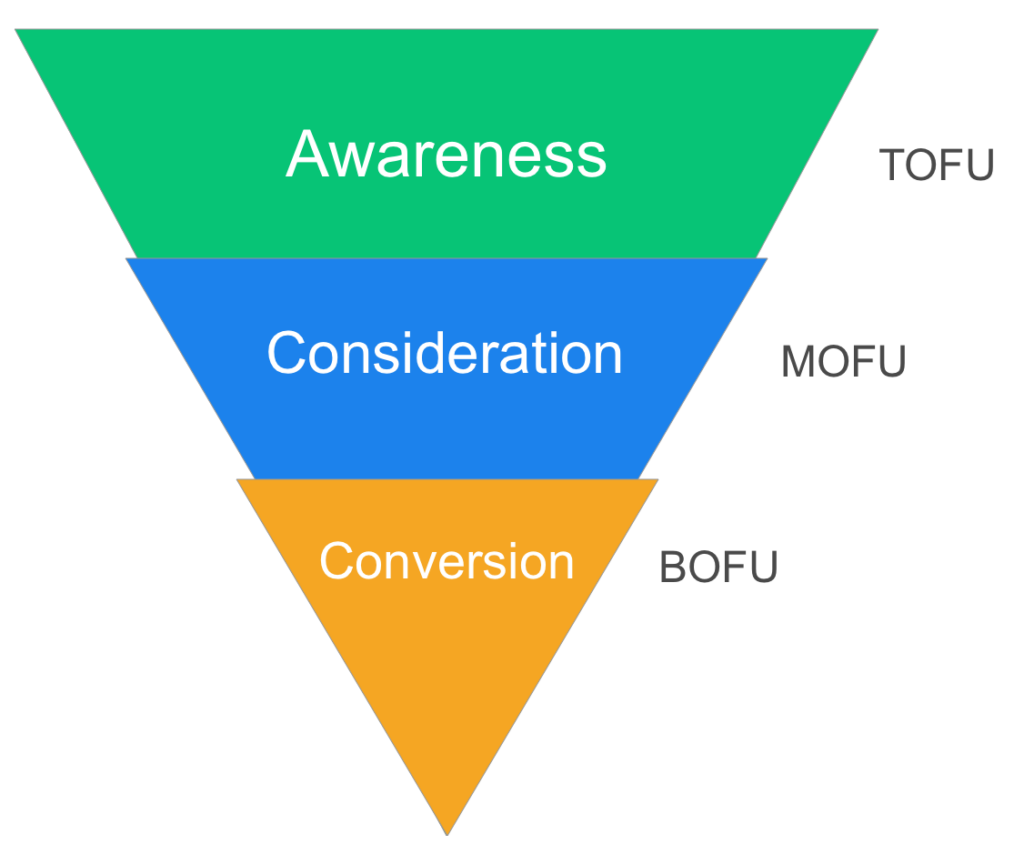
TOFU – Top of the Funnel
At this stage, your target audience has no discernible buying intent. These are the tire kickers.
Example: Someone searching for “insurance” or “English literature.”
MOFU – Middle of the Funnel
MOFU searchers have identified a problem they need to solve or an opportunity they want to take advantage of.
Some are thinking about products or services that can help them do this.
Example: Someone searching for “how to prevent frozen pipes,” “best budget leaf blowers” or “State Farm vs Allstate.”
BOFU – Bottom of the Funnel
These searchers are ready to buy and their queries show it.
Example: “Brazilian teak hardwood flooring,” “car insurance quotes no deposit,” or “buy car insurance now pay later”
The game plan: we’ll target MOFU and BOFU keywords only. That way, the content we create will attract prospects with buying intent.
Search Intent
Marketers like to talk about “search intent.” This refers to the mindset of the searcher, which can be gleaned from search engine results pages (SERPs).
Here’s a shortcut to understanding MOFU and BOFU search intent.
- MOFU searchers ask for solutions to problems (“How to . . .” ), read reviews, and compare products.
- BOFU searchers are ready to buy and may be looking for pricing information, sales, guarantee and refund information, and so on.
So, how do we put this into action?
We’ll create content that targets MOFU and BOFU intent, namely
- Product comparison articles
- Competitor reviews
- “How to” articles.
Strategy 1: Sneak into Search Results with Product Comparison Articles
MOFU searchers may not have heard of your brand. When they search for product comparisons, they might type in search terms that only include brands they’ve heard of.
For example,
- “docusign pricing”
- “pandadoc vs docusign pricing”
The good news is you can invite yourself to this party. You’re going to create your own product or service comparison article.
Let’s call your product Brand C. You’re not as well-known as Brand A or Brand B, so you create an article on:
- Brand A vs Brand B vs Brand C
You can finesse the title. For example,
- Brand A vs Brand B vs Brand C: Comparison Table and Discount Prices
The benefit of this approach is, that if your article is well-written and objective, you can rank right in the midst of searches for Brand A vs Brand B.
This is a clever way to sneak into your competitors’ search rankings and get their prospects talking about you.
Pro tip: When creating a comparison table keep the features to a minimum: readers can easily get overwhelmed by too many details. Check out these best practices.
Create High-Quality Content
Before you write your versus article, read through some top-ranking comparison articles.
Keep in mind:
- Your page will need to be at least a bit better than the competition. (Better can be simpler, less cluttered, or more comprehensive.)
- Be objective: this is how you’ll be able to rank with a product/brand comparison article.
- Review Google’s guidelines for Product Reviews.
Strategy 2: Attract Buyers With “Best of” Reviews
The next tactic is to create reviews that list your product along with competitors’ products.
Remember: searchers with buying intent will be comparing products.
And don’t be shy to use “best” in the headline. This will help your article match the search intent.
For example:
- 5 Best Drywall Sanders
- Best Budget Leaf Blowers
- 6 Best On-Page SEO Tools for WordPress
MOFU searchers will often use “best” in their search queries. By using “Best” in your headline, you’re signaling that your article is a good match for them.


And of course, you’ll list your own product as among the best.
Feel free to list your product at the top of your article or to add a “Verdict” choosing it as the best. Searchers understand that “best” really is shorthand for “quality” and “recommended.”
Strategy 3: Solve Searcher Problems with “How to” Content
Ever wonder why there’s so much “How to” content on the internet?
Short answer: There’s a huge demand for it and demand creates supply.
Smart marketers meet that demand with content that solves searcher problems and drives conversions and sales.
- The key is to identify which problems your service, content, or product solves.
- Then choose keywords (topics) to create problem-solving content on.
Here are some examples.
- A business that sells a WordPress plugin that embeds Google Reviews could create an article that answers “how to add google reviews to WordPress.”
- A hardware store can write an article on “how to fix a drywall hole” and link to the products used in the article.
- An affiliate marketing site that promotes streaming can write an article on “how to watch Yellowstone.”
Include Answers to “People Also Ask” Questions
For many, but not all, search queries, Google displays a section of expandable Q&As called “People Also Ask.”
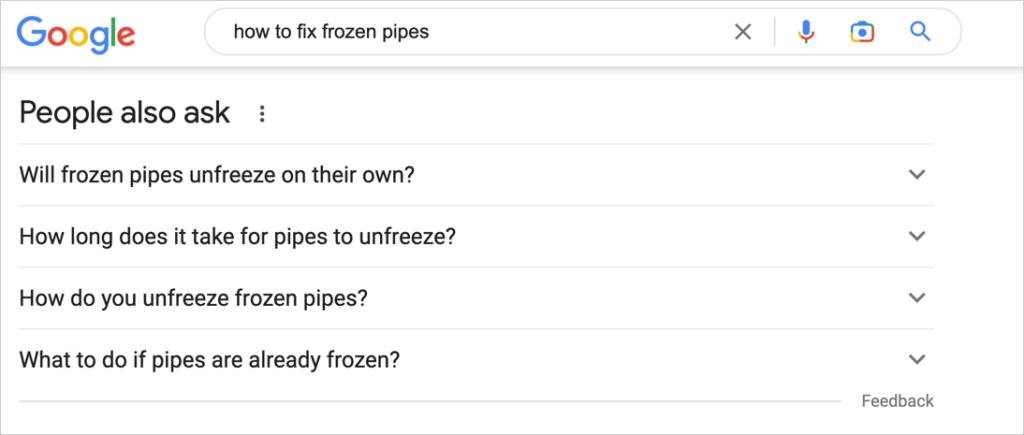

These Q&As are there because Google’s discovered that these are the most common questions people have on the topic.
PAA questions allow you to see what’s going on in the minds of your competitor’s prospects.
For example, if we do a search for “does docusign charge per signature” we immediately see some really interesting PAA, including:
- Is DocuSign free to use?
- How much does DocuSign cost?
- How many documents can you send on DocuSign for free?
- Is there something better than DocuSign?
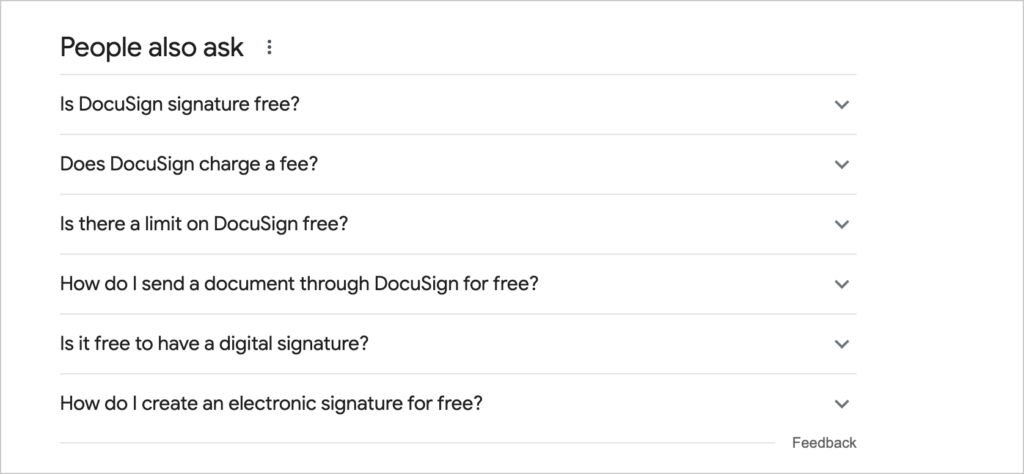

And there’s nothing stopping you from being the person who answers these questions people are asking about your competitors.
Follow these guidelines to get your answers to rank in PAA.
Optimize Your Competitive Content
We recommend that WordPress site owners use the All in One SEO (AIOSEO) Plugin to optimize their articles.
This plugin has thousands of 5-star reviews on WordPress.org and it’s easy to use. You don’t need any marketing or technical knowledge.
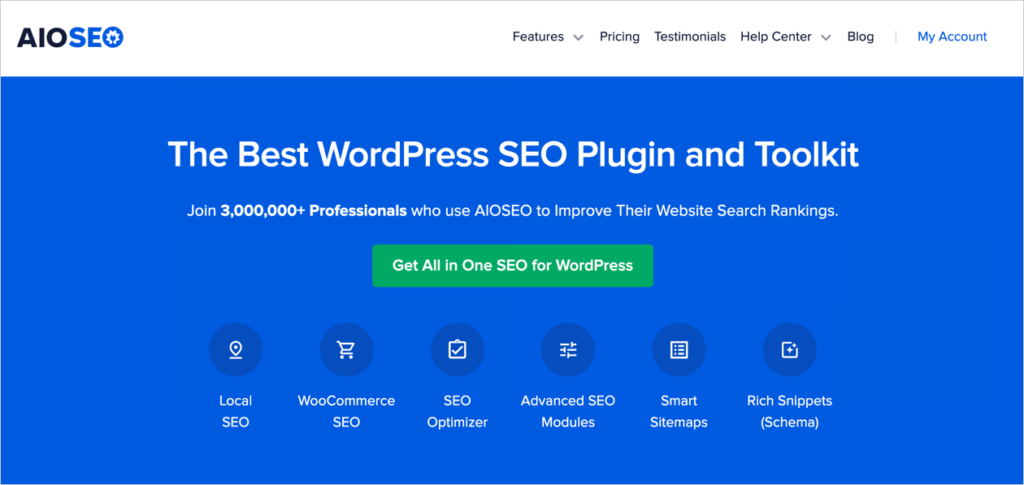

When you’re using the WordPress editor, All in One SEO (AIOSEO) will display a helpful checklist of recommendations to improve your content.
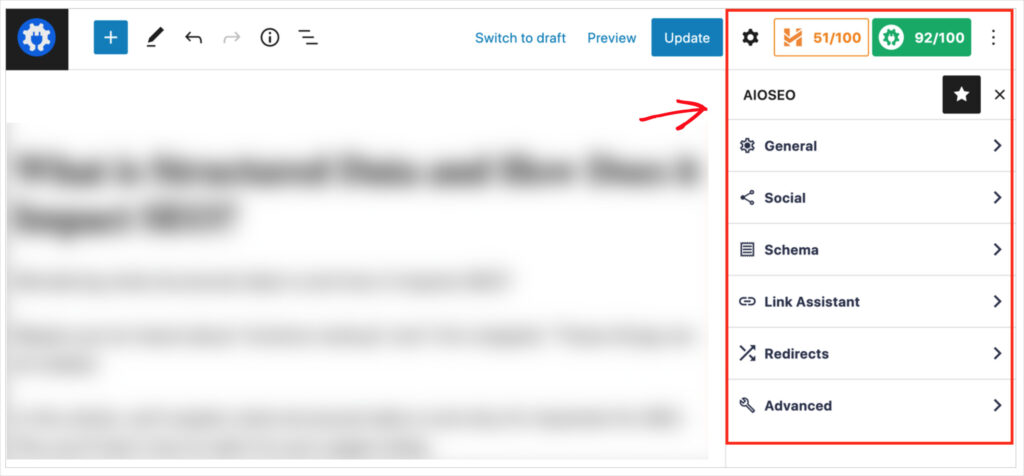

To optimize your competitive articles, we also recommend that you add schema markup. This is code that helps Google understand your page better. It also makes your page eligible to be displayed as a rich snippet in search results.
And rich snippets typically get higher click-through rates.
For your competitive content, the following types of schema may be relevant:
Adding schema markup is easy: You’ll click some buttons and fill out a form. Learn more here.


Author SEO: In addition, bolster your credibility by using AIOSEO’s new Author SEO module. It’s an easy way to communicate your experience or expertise, both of which are important to readers and to Google.
This is a way to make the most of your competitive SEO strategies.
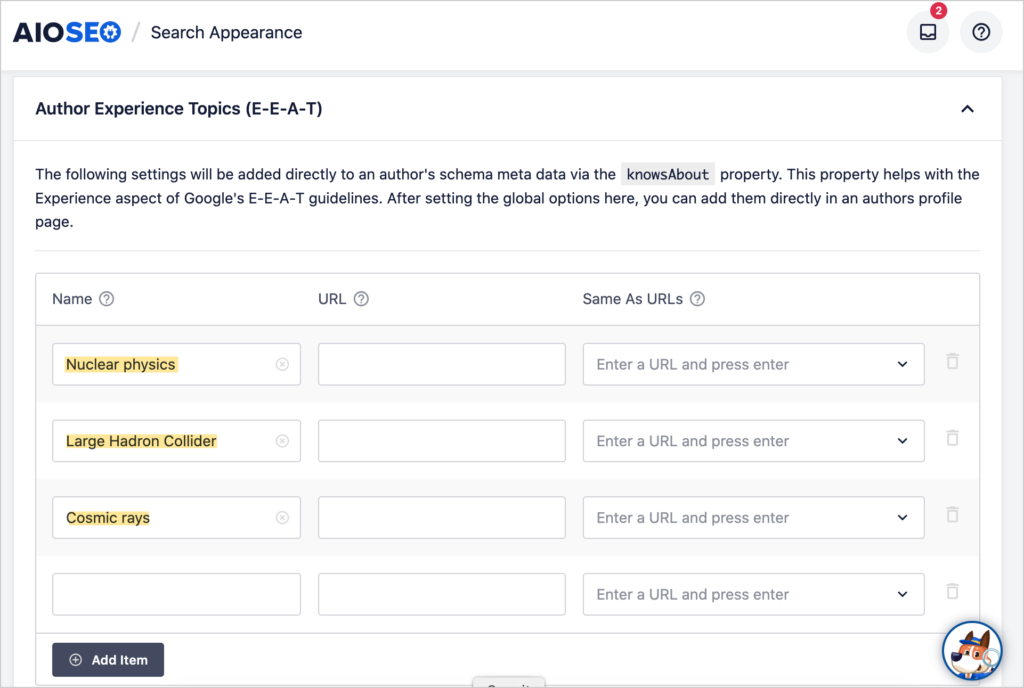

After Competitive SEO Strategies . . .
We hope this post inspires you with competitive SEO strategies that can grow conversions. You may also want to check out 7 SEO Secrets the Pros Use to Grow Revenue. The information is closely related to competitive SEO strategies covered in this article.
If you found this article helpful, then please subscribe to our YouTube Channel. We publish fresh tutorials each week. And come join us on X (Twitter), LinkedIn, or Facebook to stay in the loop.
Disclosure: Our content is reader-supported. This means if you click on some of our links, then we may earn a commission. We only recommend products that we believe will add value to our readers.


